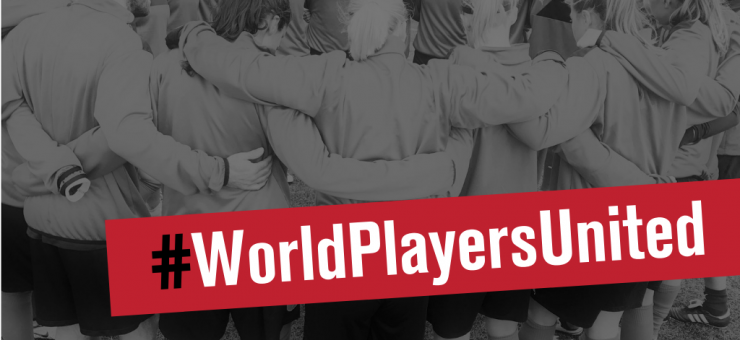News
Equal say for athletes essential to legitimize global anti-doping

The power of player solidarity, leadership and ambition: World Players presents to athlete sessions at the WADA Annual Symposium.
The World Players Association shared important experiences of the power of player solidarity, leadership and ambition at athlete sessions convened by the World Anti-Doping Agency Athletes Committee (WADA AC) on 13 and 14 March in Lausanne, Switzerland.
The sessions provided an opportunity to emphasise that the voice of organised athletes must be respected by WADA, and to demonstrate the expertise of the player association movement at a time where other athlete groups are increasingly discovering the power of their voice.
This was brought to life in a panel on athlete representation and governance by World Players Executive Director, Brendan Schwab, and Paulina Tomczyk, General Secretary of EU Athletes. They explained how player associations advance the rights of athletes through collective representation where they have an arms length relationship with leagues and sport governing bodies (SGBs). This allows players to ensure that any key decisions that affect their sports, careers, and livelihoods have their agreement.
The development of this relationship has proved to be a win-win where the commercial revenues of sport have grown exponentially, and important advances have been fought and won for players concerning minimum wages, enhanced mobility, grievance arbitration, revenue sharing, personal development and welfare programs, and just and effective approaches to anti-doping policies.
Schwab encouraged the athletes to question the premise that the appropriate model of athlete representation would see an athlete sit within the Executive Board of WADA, and that it was for the WADA AC to satisfy WADA of the manner in which that athlete would be nominated. Instead, athletes should have the ambition to demand an equal say in the governance and decision-making of WADA. He reiterated World Players’ governance reform proposals that require:
- Replacing the present bilateral partnership between SGBs and governments with a tripartite partnership in which athletes – through their legitimate representatives including player associations – have equal representation in the constitution of the Foundation Board
- Empowering the restructured Foundation Board to elect and hold to account a fully independent and skills-based Executive Board
- Guaranteeing the strict separation of powers, including an independent arbitration body with a global remit
- Embedding the internationally recognised human rights of athletes in WADA’s statutory texts in accordance with the United Nations Guiding Principles on Business and Human Rights (UNGPs).
These reforms, by adhering to world class governance standards, could transform the culture of WADA, ensuring that issues such as systemic cheating are dealt with without fear or favour, manifest cases of injustice are dealt with based on their circumstances, and that an environment does not exist that allows efforts to silence the defenders of the rights and voices of athletes.
The essential nature of the fourth of these reforms was highlighted in a panel on sport and human rights. Leading expert, Rachel Davis of Shift, explained that the UNGPs provide the framework for embedding human rights in sport and discussed their implementation by leading SGBs such as the Fédération Internationale de Football Association (FIFA)
Gigi Alford, World Players Head of Sport & Human Rights, also speaking for the Sports & Rights Alliance (SRA), a coalition of nine human and labour rights organisations, added that athletes are people first and like anyone else their human rights must not be subject to the rules of private actors, including SGBs.
WADA AC members importantly clarified that the proposed document on “anti -doping rights” was not trying to redefine or interfere with internationally recognised human rights and this will be reflected in a revised draft. The athletes reiterated that WADA, as an agency of both governments and SGBs, must urgently take the necessary steps to protect their human rights, including by implementing the UNGPs.
These important governance and human rights reforms can only be realised if athletes collectively work together to build the leverage required to deliver meaningful change. At a time where the visibility and value of effective athlete representation has rarely been more prominent, the time to do so is now.

